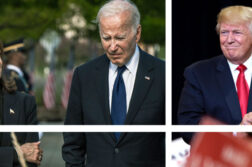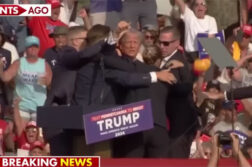On Monday, Harold Koh, Legal Adviser to the US Department of State from 2009 until January this year, delivered the Sir George Turner memorial lecture on the Obama government’s approach to international law at Melbourne University.
It was only during question time that Koh approached the controversial issue of the US government’s electronic surveillance regime, revealed by whistleblower Edward Snowden. The day before the lecture, the New York Times had reported on the vast expansion of the Foreign Intelligence Surveillance Court (FISC) but in response to questions from New Matilda, Obama’s former top lawyer played down the issue.
“[T]here are many questions about how someone of Snowden's background had access to as much information as he had … but I do believe that as much attention as this has gotten, the problem with it has not been fundamentally a legal problem,” he said.
The NYT article presented strong evidence to the contrary. FISC, the secret US Surveillance Court, “has quietly become almost a parallel Supreme Court”, reported Eric Lichtblau. It “has created a secret body of law giving the National Security Agency the power to amass vast collections of data on Americans”.
On Monday Koh said he had “no role in setting up that regime because it was set up in 1976 by an overwhelming majority of congress, and by President Jimmy Carter at the time”.
“The constitutionality of that law has been challenged under US law and has been upheld. So this is a democratically voted upon process.”
Koh considers much of the work of a government lawyer in a “post-post-Cold War world” to be “lawful but awful” — distasteful decisions “made at the margins” but within the confines of international law and the US Constitution.
“You can tell your client [President Obama] that what you'd like to do is legally available or not legally available, and if they pick one of the options you're not recommending, you can tell them it's 'lawful but awful',” he said.
When New Matilda asked him whether he thought the FISC expansion was one such “lawful but awful” situation he replied:
“We live in a world in which things are changing very fast. I might not have set up this process to begin with but I think it's a little bit — you know, the judges who sit on these courts are independent…”
He conceded that “frankly, there are certainly too many secrets in the US government”.
“The result of that has been lots of leaking … It's a very uncomfortable equilibrium. But you know, when you enter an organisation you take vows and oaths and sign contracts that you're given access to information on the grounds you keep it confidential, and some of that information could lead to the deaths of your fellow citizens,” Koh said.
Koh's lecture concerned what he described as the Obama-Clinton doctrine: “International Law as Smart Power”. He contrasted the Obama regime's approach — “Engage, Translate, Leverage” — with the “black hole” attitude towards international law under President George W Bush.
Koh argued that a “a smart power approach with international law at its core … is not only a good strategy, it is the only sustainable strategy for a leading liberal democracy for the 21st Century”. He recommended the approach be adopted by US allies, including Australia.
A “smart power” approach has defined the Obama regime's posture towards the Arab Spring and Libya, among other issues including LGBT rights and climate change, he explained.
“The US engaged with the Libyans, the Arab League, the Security Council, Nato. Translated the notion of an international responsibility to protect to the notion that Gaddafi had forfeited his own responsibility to protect his people and leveraged it into a civilian protection regime with a no fly zone and an arms embargo.”
“There was hard power, but it was only part of a much broader smart power operation that involved assets freezing diplomacy, travel bans, and ICC prosecutions,” he said.
According to Koh, the challenge is to “translate the Libya precedent into a comparable legal basis for authority for Syria” in the face of Chinese vetos at the UN Security Council. This would then be “[leveraged]into a ceasefire, support for the opposition, humanitarian aid, securing of chemical weapons and accountability for Assad and his leaders”.
Koh gave a very similar address at the Australia New Zealand International Law Conference at the Australian National University over the weekend. He reportedly said the use of chemical weapons in Syria was beyond doubt and was challenged by international law academic Treasa Dunworth. Koh omitted the remarks from the Melbourne University lecture.
He also maintained that, “You've heard no claims of torture by this administration”. He said torture is “illegal, no matter when it is used. It is never legitimate as an instrument of state policy”.
“No decision was made during my time that I thought was unlawful,” Koh said. Nonetheless he admitted that creative approaches towards international law had been necessary, because the standard method of “engagement”, signing treaties, was not achievable in a “toxic domestic political environment … incapable of doing the most basic things”.
Donate To New Matilda
New Matilda is a small, independent media outlet. We survive through reader contributions, and never losing a lawsuit. If you got something from this article, giving something back helps us to continue speaking truth to power. Every little bit counts.



